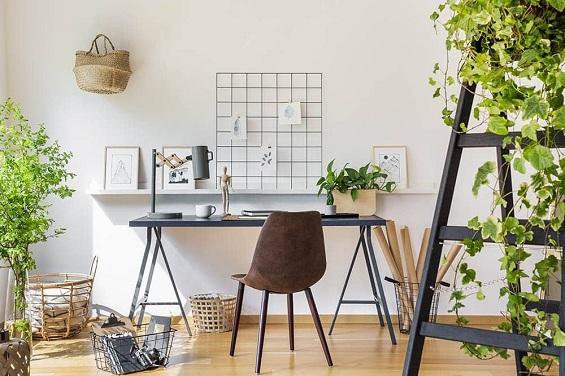Creating an inviting and well-designed study space is essential for productivity and focus. Whether you’re a student, a remote worker, or someone who enjoys pursuing personal projects, having a dedicated study space can greatly enhance your efficiency and learning experience. In this article, we will provide you with valuable tips to decorate a study space that fosters concentration, inspiration, and organization.

Tips to Decorate a Study Space
Choose the Right Location
Selecting the ideal location for your study space is crucial. Look for an area in your home that is quiet, well-lit, and away from distractions. Natural light is highly beneficial for studying, so if possible, position your desk near a window. Consider a corner of your bedroom, a spare room, or even a well-organized nook in a common area that can be transformed into a productive study space.
Optimize Ergonomics
Ergonomics plays a vital role in maintaining comfort and preventing physical strain during long study sessions. Invest in a good quality chair that offers proper lumbar support and can be adjusted to your height. Ensure that your desk or workspace is at an appropriate height to avoid slouching or straining your neck and back. Adding a footrest and using an ergonomic keyboard and mouse can further enhance your overall comfort and well-being.
Personalize with Inspirational Decor
Infuse your study space with personal touches and inspirational decor to create a motivating environment. Hang up motivational quotes, posters, or artwork that resonates with your goals and aspirations. Incorporate a vision board to visualize your dreams and keep yourself motivated. Surrounding yourself with positive and inspiring elements can enhance your mood and help maintain focus during study sessions.
Organize and Declutter
A clutter-free study space is essential for a clear mind and improved concentration. Invest in storage solutions such as shelves, drawers, or file organizers to keep your study materials, books, and supplies neatly organized. Remove any unnecessary items from your desk to minimize distractions and create a clean and efficient workspace. Consider using cable management solutions to keep cords and cables tidy and prevent them from tangling.
You may also like this : Tips for Decorating a Small Living Room
Lighting Matters
Proper lighting is crucial for reducing eye strain and maintaining alertness while studying. Natural light is ideal, but if it’s not available, opt for warm or cool LED lighting that provides adequate brightness without causing glare. Add a desk lamp with adjustable settings to control the intensity and direction of the light. Additionally, consider using task lighting for specific areas such as reading corners or writing surfaces to ensure optimal illumination for focused tasks.
Incorporate Functional Furniture
In addition to a comfortable chair and a well-designed desk, consider incorporating functional furniture pieces to enhance your study space. Install wall-mounted shelves or bookcases to store books and study materials conveniently. A corkboard or whiteboard can serve as a visual aid for notes and reminders. If space allows, include a cozy reading nook with a comfortable chair or bean bag for moments of relaxation and contemplation.
Add Greenery
Introducing plants into your study space not only adds aesthetic appeal but also provides numerous benefits. Plants improve indoor air quality, reduce stress levels, and enhance productivity. Select low-maintenance indoor plants such as snake plants, pothos, or succulents that thrive in various lighting conditions. Place them strategically around your study area to create a refreshing and calming atmosphere.
Designing a well-decorated study space is key to maintaining focus, productivity, and enjoyment while studying or working. By selecting the right location, optimizing ergonomics, personalizing with inspirational decor, organizing your space, incorporating proper lighting, using functional furniture, and adding greenery, you can create a study space that caters to your specific needs and preferences. Remember, a well-designed study space not only enhances your efficiency but also makes the learning process more enjoyable and rewarding.